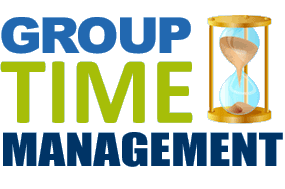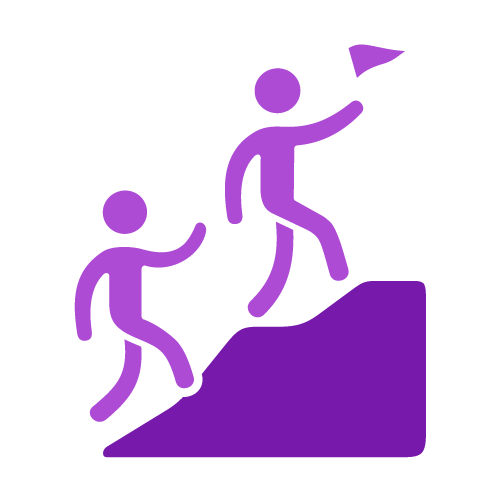
Human Resources (HR) leaders often juggle diverse responsibilities, from resolving employee concerns to developing organizational strategies. These competing demands can lead to stress and reduced efficiency if not managed effectively. Time management isn’t just about keeping a tidy schedule; it’s about making deliberate choices to focus on what matters most. By mastering time management, HR leaders can enhance productivity, reduce burnout, and create a healthier work environment for themselves and their teams.
Why Time Management Matters in HR
HR professionals play a critical role in shaping the workplace experience. Poor time management can result in missed opportunities, unresolved issues, and heightened stress. Conversely, strategic time management offers numerous benefits:
- Boosts Efficiency: When tasks are prioritized, HR leaders can accomplish more in less time, meeting organizational goals with ease.
- Improves Decision-Making: A clear schedule leaves room for thoughtful planning, leading to better outcomes for employees and leadership.
- Reduces Burnout: Managing workloads effectively helps HR leaders maintain a balance that prevents exhaustion.
By setting an example of strong time management, HR leaders can foster a culture of focus and balance throughout their teams.
Time Management Strategies for HR Professionals
HR professionals can improve their productivity with practical, actionable strategies that minimize distractions and maximize impact.
Prioritize Tasks with a Framework: The Eisenhower Matrix is a valuable tool to help HR leaders categorize tasks into:
- Important and Urgent: Tasks requiring immediate attention, like handling an employee dispute.
- Important but Not Urgent: Strategic initiatives, such as planning a training session or policy update.
- Not Important but Urgent: Delegable tasks, like scheduling interviews.
- Not Important or Urgent: Distractions or low-value tasks to eliminate.
This framework ensures focus remains on high-priority activities.
Batch Similar Tasks: Grouping similar activities into dedicated time blocks minimizes task-switching, which can disrupt focus. For example:
- Reserve mornings for employee consultations or performance reviews.
- Dedicate afternoons to administrative processes, such as benefits administration or payroll verification.
- Schedule blocks of uninterrupted time for strategy development or compliance reviews.
Task batching reduces mental strain and enhances productivity.
Preventing Burnout in HR Teams
Effective time management isn’t only about individual productivity; it’s also vital for supporting the well-being of your team. HR leaders play a pivotal role in fostering a culture that prioritizes balance and minimizes burnout.
- Set Clear Expectations: Provide realistic deadlines and distribute workloads evenly to prevent overburdening team members.
- Promote Open Communication: Encourage employees to share their challenges, workloads, and capacity, enabling better resource allocation.
Other ways to reduce stress within the team include:
- Offer Flexible Scheduling: Allowing employees to adjust their hours or work remotely helps them balance personal and professional priorities.
- Recognize Achievements: Celebrating wins, whether big or small, reinforces morale and a sense of accomplishment.
These measures build a resilient, engaged HR team that feels supported and valued.
Leveraging Technology for Better Time Management
Time management is easier with the right tools. By automating repetitive tasks and organizing schedules, technology frees up HR leaders to focus on strategic priorities.
- HR Management Software: Platforms like BambooHR or Workday streamline administrative tasks, such as payroll processing and employee onboarding.
- Project Management Tools: Apps like Asana or Monday.com organize team initiatives, ensuring projects stay on track and deadlines are met.
- Calendar Apps: Google Calendar or Microsoft Outlook enables time-blocking, reminders, and meeting scheduling to optimize daily workflows.
Implementing these tools not only saves time but also ensures consistency and accuracy in HR operations.
Shaping a Time-Conscious Workplace
HR leaders have a unique opportunity to influence workplace culture by promoting time efficiency and balance across their organizations.
- Lead by Example: Demonstrating effective time management sets the tone for your team to follow.
- Encourage Team Efficiency: Share productivity tips, like task batching or time-blocking, to help employees manage their workloads effectively.
- Regular Check-Ins: Use one-on-one meetings to discuss priorities and align workloads with individual and team goals.
By fostering a culture where time is respected and well-managed, HR leaders create an environment that enhances productivity and reduces burnout across the organization.
AdvantEdge Training & Consulting, Inc. specializes in professional development for HR leaders, providing tools and strategies to enhance time management and productivity. Partner with us to empower your HR team and transform your workplace culture for the better.











